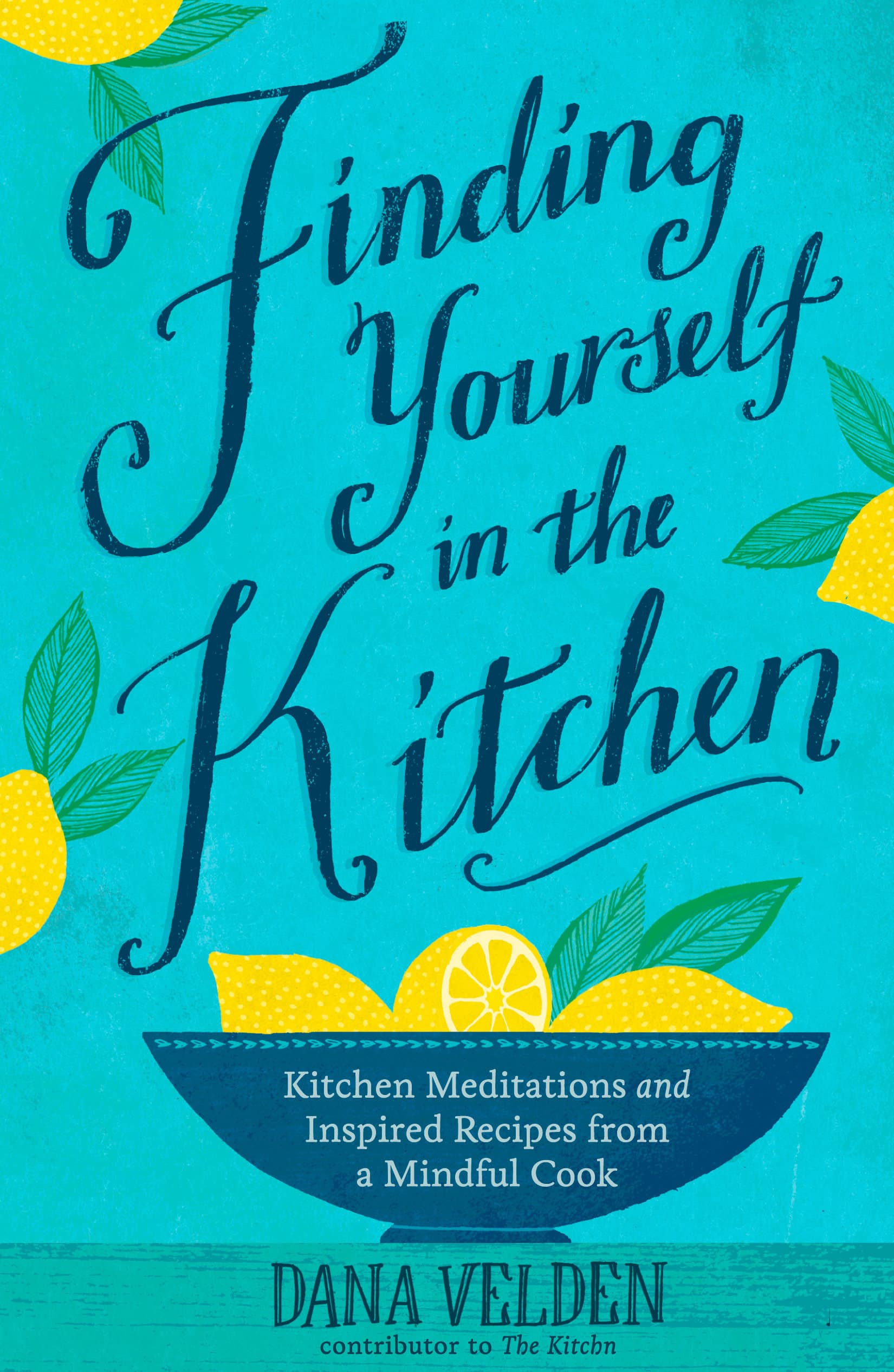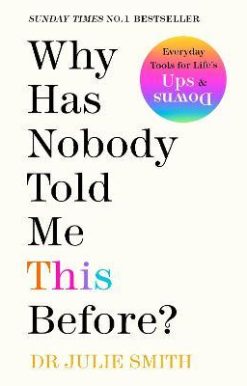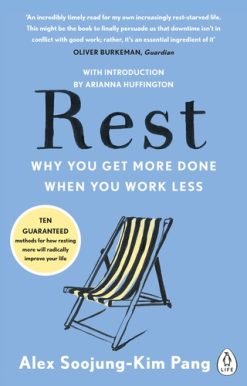Kitchen Meditations and Inspired Recipes from a Mindful Cook: Finding Yourself in the Kitchen
19.00 JOD
Please allow 2 – 5 weeks for delivery of this item
Description
Many books teach the mechanics of cooking and even inspire us to cook; not many dwell on the kitchen’s ability to be a place of awakening and joy. In Finding Yourself in the Kitchen, Dana Velden asks you to seek deeper meaning in this space and explores what cooking can teach about intimacy, failure, curiosity, and beauty. Finding Yourself in the Kitchen is a book of essays, each focused on a cooking theme that explores how to practice mindfulness in the kitchen–and beyond–to discover a more deeply experienced life. It also offers meditation techniques and practical kitchen tips, including 15 of Velden’s own favorite recipes. What happens when we find ourselves in the kitchen? What vitalizes, challenges, and delights us there? An extension of her popular “Weekend Meditation” column on TheKitchn.com, this book offers you the chance to step back and examine your life in a more inspired way. The result is a reading experience that satisfies, nourishes and inspires.
Additional information
| Weight | 0.43 kg |
|---|---|
| Dimensions | 2.24 × 14.56 × 22.1 cm |
| PubliCanadation City/Country | USA |
| by | |
| Format | Hardback |
| Language | |
| Pages | 272 |
| Publisher | |
| Year Published | 2015-9-8 |
| Imprint | |
| ISBN 10 | 1623364973 |
| About The Author | Dana Velden is a Zen priest who lived and studied for 15 years at the San Francisco Zen Center. She has been writing for The Kitchn since 2008 and has contributed to The Hidden Lamp: Stories from Twenty-Five Centuries of Awakened Women and The Kitchn Cookbook. She lives in Oakland, CA. |
“Finding Yourself in the Kitchen is a treasure, a wisdom treasure, a book to be savored, a book to be shared. Whether you prefer to enjoy it in little sips or in big bites, this collection of discrete, concise pieces are sure to enter your life again and again. It's a beautiful book, one to be kept nearby, and it's a book that will sustain you through the rough patches and the good times alike.” —Deborah Madison, author of The New Vegetarian Cooking for Everyone and Vegetable Literacy“A quietly brilliant ode to the myriad pleasures-both mundane and sublime-to be discovered in the daily ritual of cooking. Dana Velden's words read like a deliciously warm hug to cooks of all ilks; her charming stories, appealing recipes, meditative reflections, and honest encouragement will lure hesitant newbies to the stove and remind seasoned cooks why they fell in love with the kitchen in the first place.” —Erin Scott, author of Yummy Supper“The way Dana articulates what happens in the kitchen has helped me form my own deep-rooted philosophies about the cooking life. I turn to her when I cannot find the words to express how utterly healing and ultimately metaphorical it is to pick up a knife or stir a pot of soup. I am so grateful that she finally put what I am sure is just a fraction of her rich experience into a collection of chapters for us all to experience.” —Sara Kate Gillingham, James Beard Award-winner, cookbook author, and co-founder of TheKitchn.com“Finding Yourself In The Kitchen is a glorious meditation on the quiet magnificence of the mundane, and how kitchen tasks-everything from cooking to cleaning to placing a simple bowl of lemons on your kitchen table-can root and ground us in a noisy world that is distracting and nebulous. This is an instant classic, and a must-have addition to my kitchen bookshelf where I predict it will remain forever, dog-eared, stained, falling apart, and deeply loved.” —Elissa Altman, author of Poor Man's Feast: A Love Story of Comfort, Desire, and the Art of Simple Cooking |
|
| Excerpt From Book | INTIMACY, PART 1:Spending as much time as we do in the virtual world these days, it is possible that the beautiful, ordinary miracle of the physical world can become lost to us. Occasionally, we manage to lift up our heads, blinking and adjusting our sight to a point farther away than the screen, and it's like we've just woken up. It takes a moment or two to remember where we are and that we have a body, and that it is moving through space and time. The virtual world is alluring and it has its place and promise, but the actual world, the physical world, is still our most fundamental, necessary abode.Because of this, one of the more modern reasons we cook is for the physicality of it, for the opportunity to turn toward and inhabit our bodies in this very real and basic way. After being in our heads all day, sitting around and thinking and typing on keyboards, we eventually grow restless and depleted. We feel unsatisfied and achy in our bones. What a joy it is, then, to turn away from our devices and go into the kitchen to rustle up some soup from a few onions and last night's chicken carcass. At last, something tangible, something practical, something that satisfies both the body and the spirit.Cooking is compelling in part because of this physicality. It requires a kind of engagement that is both grounding and practical. Reading and discussing and analyzing a cake recipe will not make the cake. It simply must be done with our bodies, with actual ingredients and implements. We have no choice in this, really, so why not use the practical imperative to cook as a chance to deepen our engagement with our bodies and the world around us? Why not use our time in the kitchen like a counterweight against the ever-present distractions of our thinking and scheming and screen- gazing so that we can be pulled, almost without our knowing, into a more balanced way of being.Of course, we can cook in a distracted manner, with our heads somewhere else and our bodies on autopilot. But cooking will quickly teach us that we need to be fully present and aware. There's a built-in, heightened sense of alertness when we cook, for the kitchen is fraught with the potential for failure and full of dangerous, sharp, hot, and heavy situations. One second of inattention and we've lost our way in a recipe (shit, did I already add the baking powder?) or missed the part about resting the dough overnight when making bread meant for tonight's dinner. If we want to be good cooks, successful cooks, then we have to pay attention. We have to be fully engaged and in the present moment or dinner won't make it to the table, or it won't be very delicious, or worse.The Present MomentPeople often talk about being in the present moment, sometimes throwing the phrase around as if it were a simple, basic task that anyone can do if they just try hard enough. As if somehow capturing each moment as it whizzes past is possible or even a desirable thing for a human being to do. But anyone who has tried to "be in the present moment" knows that the present moment is an elusive thing. Is it this moment or (a second later) is it this one? Wait, no, it's this one! Or maybe we determinedly vow to be in the present and then suddenly we pop out of a distracted reverie having completely missed the past 10 minutes.One helpful way to look at it is that the present moment is less a thing that we apprehend and more a state of being that we can sink into. We find this not by trying to grab ahold of it, for that's like trying to hold on to a piece of water by plunging your hands into a moving stream. It is not something that can be done through will or determination. It's more about filling the mind with the act of noticing what is happening right here in front of you, right now. It's about cultivating the capacity for bare attention by stilling our active, thinking mind and allowing the present moment to arrive. It's about receptivity.This isn't something that will come to us naturally or immediately for we are very accustomed to our distracted, daydreamy minds. (Or to our problem- solving, multitasking, just-one-step-in-front-of-disaster minds.) We are very good at thinking about what needs to happen in the future or getting caught up in what has happened in the past, so to do something different takes practice. Classic forms of meditation help to facilitate this by having us sit still and gaze at the wall or the ground in front of us, with the idea that it will minimize the amount of input and help us to settle down and focus. Which it does, often very well. But it also can provide us with a very large, very blank screen in which we can see, for better or worse, the relentlessness and veracity of our thoughts and inner workings. This can be far from settling, as I discussed previously in the morning tea meditation on page 28.It's also true that unless we've managed to find ourselves in a monastery, it's doubtful that we will have the chance to sit around all day, focusing on our breath and being present. So while meditation is a good thing to do, it's also helpful to have other practices that remind us to be aware and present–something that doesn't require special situations or circumstances and ideally fits into an already established pattern in our lives. Like making dinner.A Bowl of LemonsWHEN I imagine a life without a bowl of lemons, the picture is sad and roughly textured, like burlap or the old crumbly grout that surrounds my kitchen sink that I've been meaning to replace for years now. Lemons offer so much and require so very little, except maybe a few pennies counted out at the market, or the effort of plucking one from your backyard tree if you happen to be so lucky. A single lemon is a nice thing, it's true, but a bowlful of lemons can offer you the world.I advise keeping a few lemons around at all times, if possible–filling an attractive bowl and setting it on your kitchen table or counter would be perfect. No need to refrigerate them as they'll last a long while if you're diligent to use the ripest first and remove the occasional moldy specimen. Or if you find that doesn't work in your kitchen, refrigerate most of them but keep a small clutch–maybe three–on a plate on your counter. Just to see them, just to pass by them as you go throughout your day, can bring a smile and a twinkle of pleasure. And while these moments of pleasure are far from inconsequential, there are endless, practical reasons for doing this as well.In the sweet realm, lemons offer the possibility of lemon curd, lemonade, the necessary introduction of a tart note to balance a batch of strawberry jam. They can be coaxed into many types of pie, including the famous lemon meringue and Shaker lemon. Lemon cake: chiffon, £d, layer. Lemon puddings of all sorts, and mousses, and cold things like ice cream or sorbet. Lemon bars!In the savory realm, there are few things that don't benefit from a final squeeze of lemon that will adjust the flavors with a quick, puckery hit of acid. There's also Moroccan salted lemons, lemon vinaigrette, lemon chicken, the delicious homemade condiment called gremolata, and any number of fish recipes. Risottos, pastas, flatbreads. And, of course, a quick squeeze of lemon can uplift a cup of tea or transform a mug of hot water for your morning tea meditation.Both of these lists are woefully incomplete, of course, but the point, I hope, is taken. A bowl of lemons on your kitchen table is life-changing. It's essential. It's what good cooks, the best and most happiest cooks, do.Lemon CurdMakes about 2 cupsKeeping a jar of lemon curd in your refrigerator means that you will never be short on having something delightful and sweet in the house. It means you can ask someone over for an impromptu cup of tea, or make a simple dessert by layering it with Greek yogurt in pretty glasses for parfaits. Lemon curd can be spread on scones, biscuits, and those thin Danish cookies, especially the lemon ones for a double lemony punch. It works beautifully as a filling for tarts and cakes and can be stirred into whipped cream in dramatic swirls to top fresh fruit or folded into slightly softened vanilla ice cream.Need more ideas? Use it on top of pancakes or as a filling for crepes or French toast. Make lemon mousse by gently but thoroughly folding it into whipped cream. The sweet/tartness of the lemons and the rich, creamy texture lends a note of sophistication but don't let that stop you from joining me in my favorite way to eat lemon curd: stealing a luscious spoonful (or two!) straight from the jar.3 to 4 lemons3/4 cup sugar1 stick cold unsalted butter, cut into pieces5 large egg yolks1/4 teaspoon saltPEEL three of the lemons, removing as little of the bitter white pith as possible. Set the peels aside. Cut the lemons in half and squeeze enough juice to measure 1/2 cup. Use the fourth lemon, if needed.ADD the sugar and lemon peels to the bowl of a food processor and blend until the peels and sugar are ground very fine, about 30 seconds. Then add the butter, egg yolks, lemon juice, and salt to the bowl. Blend for about 15 seconds to incorporate everything. It's fine if the mixture looks curdled.POUR the mixture into a small saucepan and place over very low heat. Cook until the mixture begins to thicken, 12 to 15 minutes, stirring constantly. A heatproof spatula comes in handy here, or a wooden spoon. Stay close and keep an eye on things, as it is very easy to overcook the mixture at this point, which will cause it to curdle. Don't let it come to a hard boil; if it does, remove the saucepan from the heat, continue to stir constantly until it settles down, and then return it to the heat.TEST the curd for doneness by dipping a spoon into the curd. It should coat the spoon and when you run your finger through it, it should leave a clear, distinct path. The curd will continue to thicken as it cooks, so don't worry if it looks a little runny at this point. Remove from the heat.PLACE a strainer over a bowl and pour the curd through it to catch any peel or coagulated egg. Pour the curd into a clean jar and allow it to cool to room temperature. (Or, if it fits, just place the sieve over the storage jar and strain it directly into it.) Seal the jar and store in your refrigerator where it will keep for several weeks. Unless, of course, you're like me and you eat it all up in a few days!Note: If you don't have a food processor, you can remove the lemon peel with a zester or rasp and mix all the ingredients into a bowl by hand. In fact, I often find a rasp or microplane is the easiest way to remove lemon peel even if I am using the food processor.Don't WaitIN my pantry right now, there among the cans of tomato paste and chicken noodle soup, is a box of rich, decadent sipping chocolate, a bag of dried porcini, and a little tin of handmade candied violets. In my closet, a pair of fancy velvet heels and a gorgeous cashmere sweater mingle with the cotton shirts and clogs. Tucked away in a drawer, a small vial of a favorite, very expensive perfume waits for the special day that I will dab it on my wrists. Besides being wonderful and special, all these things have one other thing in common: I never use them. And I've been thinking that this has to change.I have this habit of saving (hoarding perhaps?) certain things, special things, delicious things, things that normally don't appear in my everyday life. Why? Well, on the surface it seems logical. Because I may never have the chance to see them or taste them again, I become very careful with them and dole out their specialness in small, cautious doses. These resources are limited, after all, so they must be saved for a special day. Right? Well, maybe not.Lately, I've been questioning this thinking. Is there something more going on here, some basic assumptions I am making about my life, about the world I live in? Is it really true that wonderful things are rare and limited and should be guarded? Is it really true that some days are more special than others? And the answer, while a bit more complicated than this, basically boils down to "no."If I look really closely, I see this attitude originates in a sense of scarcity, a fundamental feeling that there's not enough. And not only that, this sense of scarcity is a habit, a basic, foundational attitude that permeates all aspects of my life. I don't lead with it but if I'm quiet and ask myself the right questions, I can see it there, lurking and influencing many of my thoughts and decisions.And it persists even in the face of good evidence that actually I live in a time of enormous abundance. Everywhere I look, there is much to be grateful for, much to be appreciated. From the tumbled, tangled profusion of my pantry shelves to the way the sun is shifting into its spring position and spilling light through my kitchen window. The smile from a stranger passing on the sidewalk, the enormous selection of teas in my grocery store aisles, the presence of my friends and family, their wisdom and caring. This is the good life! This is cause for celebration!Instead of saving the good stuff for later, what about throwing a party every day? What about splashing on that special perfume until the vial is empty and snuggling into that cashmere sweater before sitting down at my computer to work? And what about those delicious things in the pantry? What if I don't taste some sipping chocolate now and I get run over by a bus this afternoon? I will never, ever have had the chance to taste it, to enjoy its velvety texture and dark, nuanced bitterness. Is that how I want to live this life? |
Only logged in customers who have purchased this product may leave a review.






Reviews
There are no reviews yet.